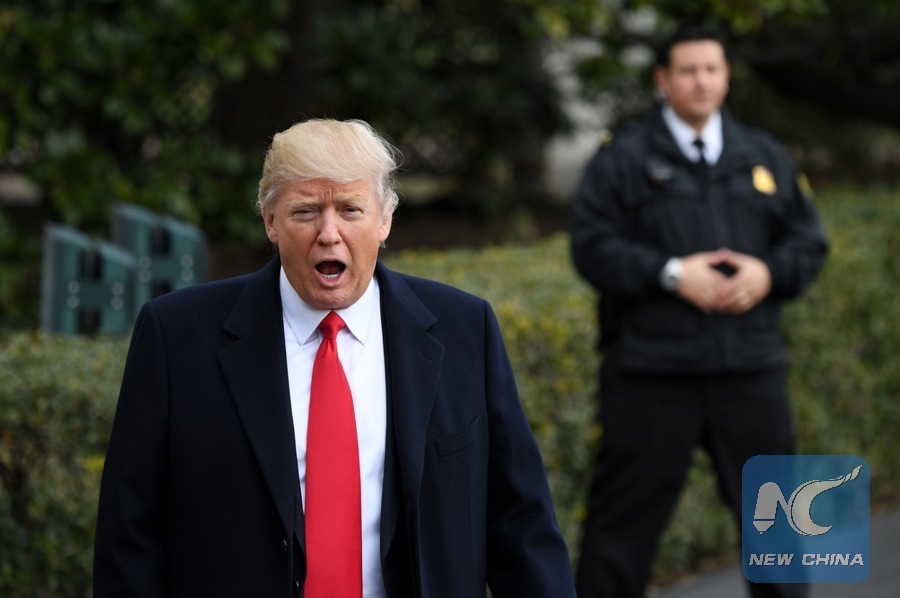
U.S. President Donald Trump reacts to media at the White House in Washington D.C.,the United States, Feb. 3, 2017, before boarding Marine One departing for Andrews Air Force Base en route to West Palm Beach, Florida. (Xinhua/Yin Bogu)
WASHINGTON, Feb. 3 (Xinhua) -- U.S. President Donald Trump on Friday signed two executive actions as part of his plan to overhaul financial regulatory system.
The first is an executive order which proposes guidelines and principles for the regulation of the financial system, said the White House in a statement on Friday.
The order also directs the Treasury Secretary to work with other regulators to review current financial regulatory rules on the basis of the principles put forward in the order.
The executive order "sets the table for a regulatory system that mitigates risk, encourages growth, but more importantly, protects consumers," White House spokesman Sean Spice said on Friday.
The order was considered to establish a framework for scaling back the 2010 Dodd-Frank Act which was enacted in response to the 2008 financial crisis. Under the law, regulators have introduced strict new capital standards on banks, called for annual stress tests for systemically important banks, and created the Consumer Financial Protection Bureau.
"We expect to be cutting a lot out of Dodd-Frank," Trump said at a meeting with a group of business leaders earlier Friday. He added that companies "can't get any money because the banks just won't let them borrow it because of the rules and regulations in Dodd-Frank" .
Although Trump accused of the financial regulatory law, he can' t do away with it, because only the Congress can rewrite the legislation.
The White House will continue to work with the Republican-controlled Congress to address the financial regulation law, said Spicer. Congressional Republicans seem likely to cooperate with the administration on this issue, as some of them have long been against the Dodd-Frank law.
Trump on Friday also signed a presidential memorandum and required the Department of Labor to review a retirement saving rule which was introduced under the Obama administration and will take effect in April this year.
"The rule's intent may be to have provided retirees and others with better financial advice, but in reality, its effect... is to limit the financial services that are available to them," said Spicer.
The rule, which requires financial advisers on retirement accounts to work in the best interests of their clients, was opposed by many financial institutions, because they believed the regulation could raise their costs.

